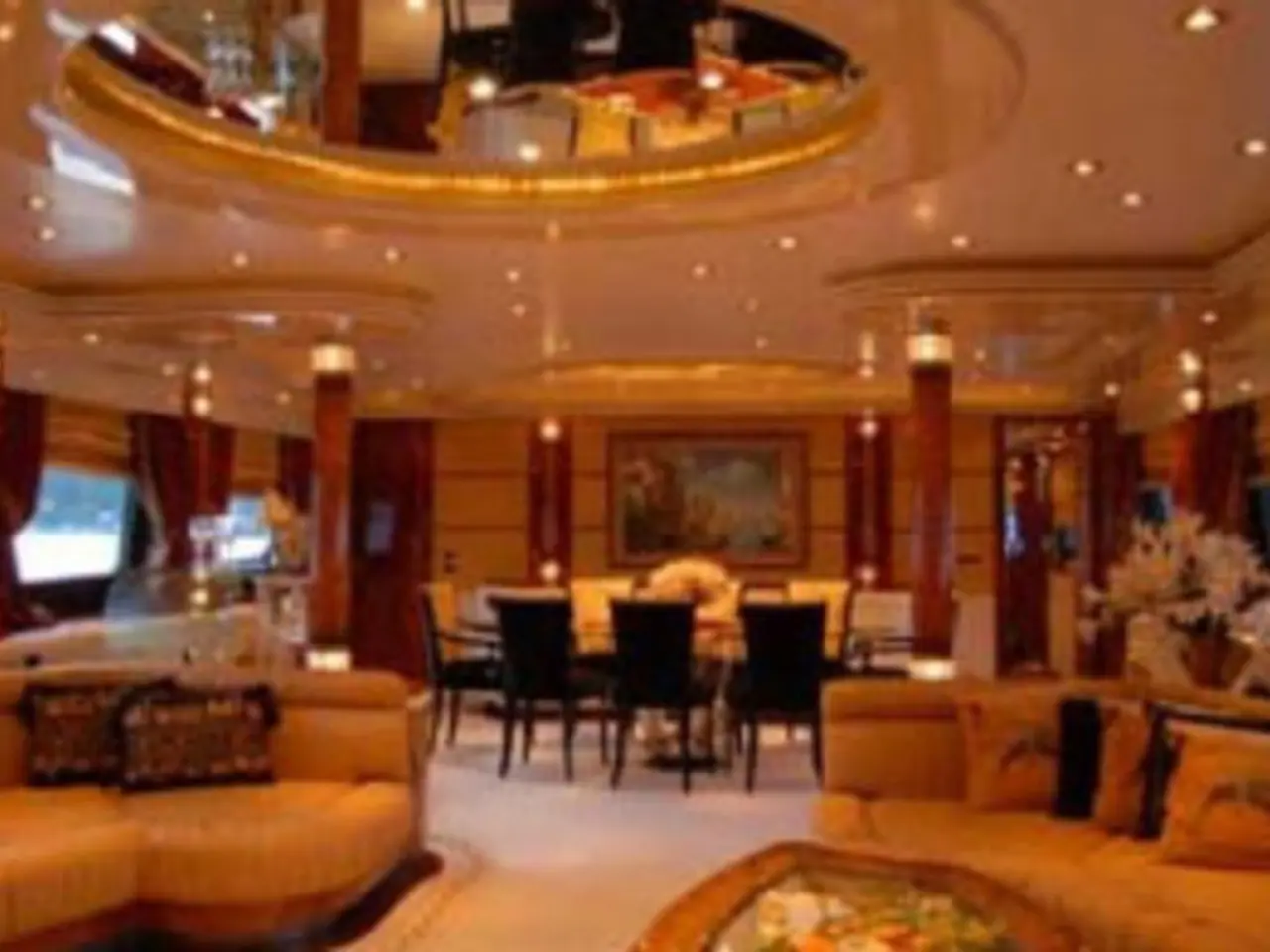Could Riyadh's expansive hotel construction spree pave the way for a worldwide green hospitality benchmark?
In the heart of Saudi Arabia, Riyadh is making significant strides towards becoming a global tourism hub, while also prioritising environmental sustainability.
The city's hotels are embracing the concept of long-term investment, accepting higher costs for sustainable materials as part of their commitment to a greener future. This approach is expected to help hotels achieve a 94 percent waste recycling and conversion rate, a remarkable goal that positions Riyadh at the forefront of sustainability efforts.
The structures in the city are not just green in philosophy, but also in practice. Advanced treatment systems are being used to recycle wastewater, a crucial step in Riyadh's quest for environmental resilience. The city's sustainability strategy includes a goal to reduce carbon emissions by 50 percent citywide, a challenging yet achievable target.
Riyadh is also planning to add 360,000 new hotel rooms by 2030, a significant expansion that will be underpinned by sustainable practices. Over 40 buildings in the district are LEED Silver or Gold-certified, demonstrating the city's commitment to sustainable innovation. These buildings achieve 10-15 percent energy savings through high-efficiency appliances and smart climate control.
The Saudi Investment Recycling Co. (SIRC), a Public Investment Fund subsidiary, is playing a crucial role in this transformation. SIRC develops and operates recycling infrastructure across all waste types, including converting demolition debris into certified concrete aggregates used in landmark projects. This circular economy approach ensures that waste from construction in Riyadh is being utilised where materials came 100 percent from recycled sources.
Riyadh aims to reuse 100 percent of treated water for irrigation and greening, another step towards a more sustainable city. Companies like SIRC guide others to utilise recycled materials in construction, fostering a culture of sustainability in the industry.
As Expo 2030 approaches, Saudi Arabia is positioning itself to lead global sustainability standards tailored for hyper-arid regions. Transformative solutions like AI-managed water recovery networks and SIRC's circular economy platforms are being developed, setting a new benchmark for environmental resilience.
However, there are challenges to overcome. Verification gaps present a complexity: the absence of Saudi and GCC-authorized accreditation bodies for auditing recycled content percentages creates vulnerability to greenwashing claims without standardised chain-of-custody documentation.
Despite these challenges, Alreshaidan concluded optimistically: "Comprehensive solutions are materializing precisely where most critically needed to harmonize growth with planetary stewardship." As Riyadh continues to grow and evolve, it's clear that sustainability will be at the heart of its development.
Read also:
- United States tariffs pose a threat to India, necessitating the recruitment of adept negotiators or strategists, similar to those who had influenced Trump's decisions.
- Weekly happenings in the German Federal Parliament (Bundestag)
- Southwest region's most popular posts, accompanied by an inquiry:
- Discussion between Putin and Trump in Alaska could potentially overshadow Ukraine's concerns








